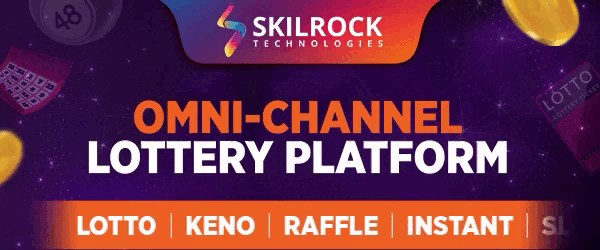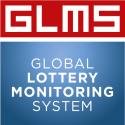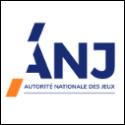A General Introduction to Gambling Law in Germany
![]()
Overview
i Definitions
In contrast to other jurisdictions, where ‘gaming’ or ‘gambling’ might serve as useful terms to distinguish between products that will be subject to specific gambling regulation, in Germany, a product must qualify as a ‘game of chance’ to fall under the scope of the Interstate Treaty on Gambling (the Interstate Treaty), the main legal framework of relevance in this context. This is the case whenever valuable consideration is given in exchange for a chance to win and the determination of winnings is entirely or predominantly a matter of chance in the context of a game. In this chapter, such games of chance will also be referred to as gambling.
Although bets are also considered games of chance under the Interstate Treaty, a licensing regime open to private operators was only established for fixed-odds sports betting offerings. Horse-race betting offerings are also licensable. Betting on events other than sports (and horse races) – such as political events or financial products and trades (including spread betting, FX trading, binaries, contracts for difference, etc.), sometimes also referred to as ‘social betting’ or ‘novelty bets’ – is not permissible under German gambling laws and may be subject to other regulation, namely financial services and banking regulation, rather than gambling regulation. Pool betting offerings are reserved for the state monopoly, since such offerings are commonly classified as a kind of lottery.
Lotteries in general are defined as games of chance that are directed at a majority of persons, involve a certain payment, a specific game plan and the chance to win money or other prizes of monetary value (the latter would be referred to as a draw in Germany).
Games that do not fall under the Interstate Treaty’s definition of a game of chance and, consequently, are not subject to specific gambling regulation (but that are still likely to be subject to other rules and regulations aimed at ensuring consumer protection), depending on the element of a game of chance they lack, are commonly referred to as either skill games (no predominant element of chance) or free-to-play games (no consideration paid to participate, such as free prize draws). Although ultimately subject to a case-by-case analysis, where German jurisprudence may provide some guidance, if only to a limited extent, social games will mostly be classified as skill games. In the absence of specific regulation, the legal classification of fantasy league games offered to German players will depend on the specifics of the product (i.e., its overall design and structure) and the question whether, with this design and structure, the game qualifies as a game of chance as defined in the Interstate Treaty.
Against this background, skill competitions and competitive sports for prizes also do not typically fall within the scope of gambling regulation in Germany.
ii Gambling policy
Consumer protection, in particular the prevention of gambling addiction and protection of minors and other vulnerable persons, the channelling of players towards the regulated market, the guarantee of an orderly and fair gambling offering, combating of fraud and other gambling-related crimes as well as the protection of the integrity of sports are the statutory objectives of German gambling regulation. While Germany has long been known to take a fairly restrictive position towards gambling, the entry into force of the new Interstate Treaty finally led to the introduction of licensing regimes for virtual slot games, online poker and even ‘online casino’ games (meaning in particular bank–holder games such as roulette, blackjack and baccarat). However, the protectionist approach of the German states over their lottery monopoly (and, with respect to a previous Interstate Treaty, sports betting monopoly2) and years of continued criticism under EU law (which go hand in hand) must be seen to be characteristics of German gambling regulation. As a result, gambling regulation in Germany is constantly undergoing some kind of reform, usually triggered by a decision from the Court of Justice of the European Union (CJEU) or national courts, or intervention on the part of the European Commission confirming that the European fundamental freedoms are not sufficiently assured, and that regulatory goals cannot be achieved by means of the current regulation and licensing opportunities. However, the European Commission announced in December 2017 that, as a general policy regarding the gambling sector, it would close all pending infringement procedures and complaints. After years of interstate negotiations, German policymakers in March 2020 agreed on a reform of the regulation, which again follows a more restrictive approach. While the fourth iteration of the Interstate Treaty, which entered into force on 1 July 2021 (the Interstate Treaty 2021), provides for the licensing of virtual slot machines and online poker with limited stakes and winnings, it remains to be seen whether or not online casino games will be opened to private operators or, as is more likely, run as a federal state-based monopoly. The new law also clarifies that in-play betting per se is permissible, but the regulatory discussion on the scope of sports events that it should be permissible to bet on has yet to be concluded. In marked contrast in this regard, because of many legal disputes, most operators have reached court settlements that condone certain live bets, at least temporarily, pending a final assessment by a higher court. At the time of writing, 31 licensed sports betting operators, 27 virtual slot machine operators and four online poker operators are active on the German market.
iii State control and private enterprise
The principal German legal framework on gambling allows, only to a limited extent, for gambling to be operated by private enterprises rather than the state. For example, in most German states land-based casinos are owned by the state and the operation of lotteries is exclusively reserved for the state-owned lottery companies, which the German states are very protective of. With regard to lotteries, private operators may only apply for brokering licences, which allow them to sell lottery tickets on behalf of the state lottery companies to promote their products (i.e., the traditional lotteries). In the sports betting sector, as prominently confirmed by the CJEU in the Ince case,3 despite it having been held to contravene EU law in 2010,4 the persistence of an unlawful de facto state monopoly led to the introduction of a new licensing process for sports betting. The licensing process started on 1 January 2020 for retail and online sports betting. Subsequently, the Interstate Treaty 2021 also introduced a licensing regime for virtual slot machine games and online poker. Licences for online casino games (i.e., virtual versions of bank–holder games such as roulette or baccarat and live broadcasts of these games) are not granted on a national level but, instead, on a federal state level. Each German federal state can decide whether it wants to grant these licences to private operators or not. So far, however, only a few states have exercised this competence, with the result that there is currently no active online casino market for private operators. Furthermore, only a very limited number of operators will be granted an online casino licence in federal states, since a state can only issue as many licences for online casinos as it has issued for local (i.e., bricks-and-mortar) casinos in the territory.
iv Territorial issues
Within the German federal system, gambling law is traditionally regulated at state level. Accordingly, gambling regulation is predominantly subject to the state law of each of the 16 states. To achieve some uniformity, the states agreed on common principles and regulations for areas fields of gambling law in the Interstate Treaty. This includes the sports and horse betting, virtual slot and online poker sector, where the new Joint Gambling Authority of the German Federal States (the Joint Gambling Authority), in Halle (Saxony-Anhalt), is authorised to act on behalf of all 16 German states as the responsible licensing and supervisory authority.
In Germany, there are no localities that have been given favoured status for gambling like those in other countries, tourist islands, reservations and integrated resorts. Only Germany’s northernmost state, Schleswig-Holstein, has granted online casino licences in the past and allowed its residents to participate in the corresponding gambling offerings, which were licensed solely at federal state level. These licences were issued between January 2012 and February 2013, when Schleswig-Holstein pursued its own gambling policy before joining the other 15 states in the Interstate Treaty; the licences were reinstated in May 2019 by local legislation. According to the transitional rules under the Interstate Treaty 2021, Schleswig-Holstein licences valid on 30 June 2021 continue to be valid for a transitional period until a licence is granted under the Interstate Treaty 2021 but not beyond 31 December 2024.
v Offshore gambling
The attitude of German gambling regulators to offshore gambling operators (i.e., those who offer gambling products to German citizens but are based outside Germany) can be considered to be problematic as the German states have continually failed to strike a lawful balance when selecting operators to enforce against. Ignoring the main goal of German gambling regulation (i.e., to prevent and combat gambling addiction and to ensure consumer protection), the enforcement activity of German states with regard to offshore operators has tended to target EU-licensed operators for reasons of practicality, rather than operators with inadequate licensing or insufficient consumer protection measures in place. Irrespective of the question how, in light of the fundamental EU market freedoms, enforcement measures targeting EU-based and licensed gambling operators can be legally justified in the current situation, the proportionality and consistency of such an enforcement practice is questionable and, in the past, certain German administrative courts have also identified these aspects of the enforcement practice as problematic. However, in a judgment handed down by the Federal Administrative Court in October 2017,5 the requirements for enforcement authorities were considerably loosened, and compliance with EU law was essentially confirmed for the restrictions on online gambling in effect under the Interstate Treaty.
Since the entry into force of the Interstate Treaty 2021, the Joint Gambling Authority has taken on responsibility for gambling matters and is now also competent for enforcement against all forms of unauthorised online gambling. Enforcement has been directed against (among others) offshore gambling operators without a German licence, whether based in or outside the EU. The Joint Gambling Authority derives the legal basis for acting against foreign operators from the Interstate Treaty 2021, which, pursuant to Section 9, allows the Authority to undertake investigations into alleged violations of the Interstate Treaty 2021 and to interdict the corresponding offering or related advertising. The authority may also resort to payment-blocking measures under this provision. Although payment blocking still raises a number of legal questions, mainly connected to data protection laws, the former responsible regulator of the state of Lower Saxony has taken a rather rigid stance and issued multiple payment-blocking orders against major payment service providers (PSPs) in the past.6 The Joint Gambling Authority has been consistent in pursuing this approach. The Interstate Treaty 2021 also introduced the option to issue internet protocol (IP) address blocking orders against internet service providers (ISPs). The extent to which, and how efficiently, this measure will be used for the protection of the regulated market against illegal gambling remains to be seen. However, it is already evident that the new competent authority in Halle is adopting a rather strict approach with respect to advertising or payment processing for illegal gambling.
Legal and regulatory framework
i Legislation and jurisprudence
As explained in Section I.i, the basic legal framework for gambling in Germany is the Interstate Treaty 2021, which was introduced on 1 July 2021 and marks the fourth attempt by the German states to create a uniform and EU-law-compliant gambling regime.
The first amendment of the Interstate Treaty took place in 2012 following a legislative process initiated as a result of the CJEU finding that the state monopoly on sports betting provided for in the Interstate Treaty of 2008 contravened EU law.
The Interstate Treaty has been subject to criticism since it first entered into force, and the failure of the sports betting licensing process introduced by the Interstate Treaty (and subsequently confirmed by national courts and most prominently the CJEU in the Ince case as being unlawful) ultimately triggered the reforms that led to the third amendment of the Interstate Treaty.
In spring 2020, the German federal states agreed on the fourth amendment of the Interstate Treaty, which entered into force on 1 July 2021. The new legislation broadened the extent of permissible sports betting and introduced licensing of virtual slot games, online poker and online casino games, although the latter is expected to remain predominantly subject to a state monopoly.
In addition to the Interstate Treaty 2021, gambling is also regulated by other state legislation; for example, the state gambling acts implementing the Interstate Treaty 2021, and state casino acts and ordinances. For historic or general reasons, gambling is also influenced by certain federal laws, such as the Race Betting and Lottery Act, the Trade Regulation Act, the Criminal Code and the Fiscal Code.
ii The regulator
The responsibility for regulating gambling is vested in regulators at state and municipal level. The responsibilities range from individual municipalities acting as regulators (e.g., in the land-based gaming hall sector) to the state ministries (or their subordinate authorities), which are responsible for bricks-and-mortar casinos, coordinating enforcement actions against suspected unlawful gambling operators or violations of the Interstate Treaty 2021 and the applicable state gambling acts.
Further, one authority has now been appointed by all states to act with central responsibility for the online sector. This new authority, the Joint Gambling Authority, took over all responsibilities on 1 January 2023 and is now responsible for conducting the sports and horse race betting, virtual slot machine games and online poker licensing process in Germany. Consequently, the former regulator for sports betting, the Regional Council of Darmstadt, and the former regulator for virtual slots and online poker, the State Administration Office of Saxony-Anhalt, ceded competence for these areas on that date. By 1 July 2022, the Joint Gambling Authority had already taken on responsibility for enforcement (i.e., the regulatory prosecution of unauthorised online gambling and related advertising).
iii Remote and land-based gambling
The Interstate Treaty 2021 allows the licensed operation and brokering of online gambling. As outlined above, only online casino games (i.e., online versions and live broadcasts of bank–holder games) are still subject to a state monopoly, whereas virtual slot machine games and online poker are licensable on a national level but subject to substantial product restrictions, such as limits on stakes per spin, minimum duration of each spin and the number of poker tables allowed for simultaneous play. In contrast to online gambling, land-based gambling is subject to a variety of licensing systems on state and municipal level, including bricks-and-mortar casinos, gaming halls, betting shops and lottery agents.
iv Land-based gambling
Land-based gambling is only permissible in certain venues. Details will either be stipulated in the law, detailed in the application requirements or form part of the licence.
The operation of casinos in some states is reserved for the public authorities, while other states provide a limited number of licences for private operators. The number of casinos allowed per state will, however, always be limited and varies between the states. In Baden-Württemberg, for example, three land-based casinos are allowed, whereas in Mecklenburg-Western Pomerania six casino locations are provided for in that state’s casino legislation. This also affects the number of online casino licences available in a particular state, provided that the state is prepared to grant such licences to private operators at all.
The Interstate Treaty 2021 does not provide for a maximum number of sports betting, virtual slot machine or online poker licences. It has yet to be determined how this will impact on the permitted numbers of betting shops per operator stipulated in the current state gambling acts or other acts transposing the Interstate Treaty 2021, which vary considerably depending on the state in question. These limitations on the permitted numbers of betting shops have been criticised as being arbitrarily determined.
With regard to gaming halls, the regulations do not stipulate a statutory limit on the number of available licences, but this sector is undergoing major changes. The strict minimum distance requirements that gaming halls must adhere to (i.e., between gaming halls, and between gaming halls and institutions such as schools or addiction centres) and the requirement for gaming halls not to be operated in the same building as land-based casinos or betting shops effectively limit the number of available gaming hall venues.
v Remote gambling
In principle, the Interstate Treaty 2021 imposes a general ban on online gambling. Exceptions only apply for licensed traditional lotteries, horse racing, sports betting, virtual slot machine games, online poker and to a limited extent online casino games.
Former iterations of the Interstate Treaty did not provide a licensing system for online gaming (with the exception of sports betting). This situation had been criticised by experts in the industry, as well as the European Commission. In a pilot process initiated in 2015, the European Commission made clear that it considered the ban ineffective in achieving the goals set out by the Interstate Treaty. However, in December 2017, the European Commission announced that, as a general policy regarding the gambling sector, it would close all pending infringement procedures and complaints. In parallel, the Federal Administrative Court confirmed in a precedent judgment on 26 October 2017 that it considered the restrictions to online gambling under the former Interstate Treaty to comply with EU and constitutional law.7 These developments weakened the legal position of operators of online gaming in Germany that used to rely on the freedom of services to justify operating in the unregulated market. Foreign licences are generally not recognised by German regulators and courts.
The Interstate Treaty 2021 changed this fundamentally and finally introduced licences for virtual slot machine games, online poker and online casino games. Virtual slot machine games are defined as replicas of terrestrial slot machine games. Limitations include the maximum €1 stake amount per spin and the five-second minimum duration per spin. Since 1 January 2023, deviations from the limit of €1 stake per spin can be applied for, but the responsible authority seems inclined only to approve such applications subject to strict conditions. Notable among the restrictions specific to virtual slot machine games, are the prohibition of jackpots (i.e., stakes or winnings may not be accumulated for the purpose of creating winnings for future games) and of autoplay functionality. Online poker is also restricted, including the prohibition of video poker, restrictions on the number of tables to be played at the same time (i.e., a maximum of four) and limitations on stakes and blinds. Online casino games are defined as virtual versions of bank–holder games and live broadcasts of a terrestrial banker game. These restrictions specifically address roulette, blackjack and baccarat and subject them to a state monopoly. Whether or not individual states will consider opting for issuing licences to private operators in this market remains to be seen. However, the first states to regulate have already passed bills that include licensing regimes for these games.
vi Ancillary matters
As part of the licensing process, operators applying for a licence will have to prove that any equipment used has been approved in accordance with the applicable technical requirements and information technology (IT) security standards. Certificates or other documents on their business-to-business (B2B) partners are usually expected by regulators. While the provisions on the licensing proceedings under the Interstate Treaty 2021 do not stipulate a specific licensing process for gambling-related B2B services, it is required by law that each virtual slot machine game and online poker game must be approved by the regulator in Saxony-Anhalt. Consequently, operators have to apply not only for a general operator licence but also for an additional licence allowing all offered virtual slot and online poker games. This further licensing process is accompanied by extensive testing and review, in the course of which the authority must be provided with access to the operator’s test environment.
As regards individuals acting in key positions, it has to be demonstrated in the course of the licensing process that these persons are sufficiently qualified and have the necessary expertise to conduct the business reliably and responsibly. Typical requirements include criminal record checks, tax clearance certificates, CVs and evidence of professional expertise, including training certificates. Beyond those requirements, there is no specific licensing process (e.g., for personal licences) that employees of gambling operators would have to undergo.
vii Financial payment mechanisms
According to the German Anti-Money-Laundering Act (the AML Act), before a transaction is carried out, it has to be verified that the payment account is set up in the name of the player and must be with a bank, payment institution or electronic money institution licensed in the EU. This was also reconfirmed in the Implementation Guidelines regarding the implementation of the AML Act in the gambling sector (the Implementation Guidelines), which were published on 1 February 2019 and updated again in November 2020 by the highest gaming supervisory authorities of the German states. The use of anonymous payment methods is not permitted. The same requirements would apply for the use of cryptocurrencies, such as bitcoin; however, gambling regulators have not approved bitcoin as means of payment in a licensed environment yet. Considering that the Joint Gambling Authority still tends to take a more conservative approach and, as yet, has not adapted swiftly to new trends in the online gambling sector, it seems unlikely that this would be permitted in the near future.
By: Joerg Hofmann, Matthias Spitz, Nikolai Straimer and Roman Herpich
SOURCES: Melchers Rechtsanwälte – Lexology.

































